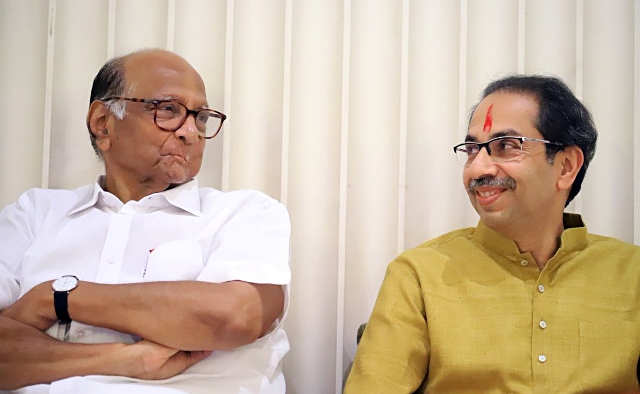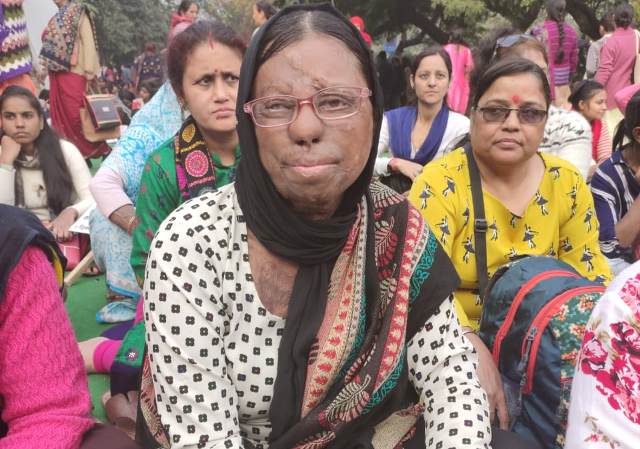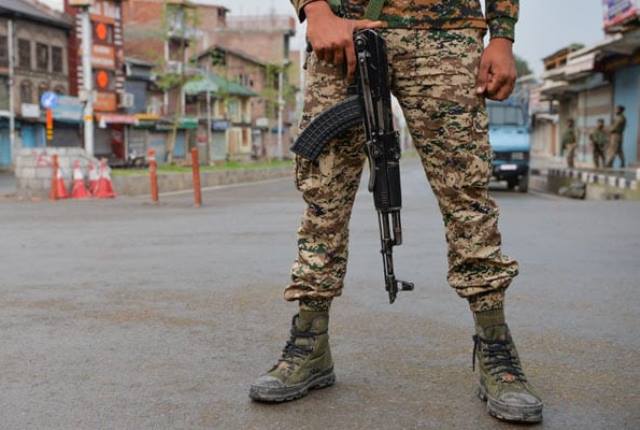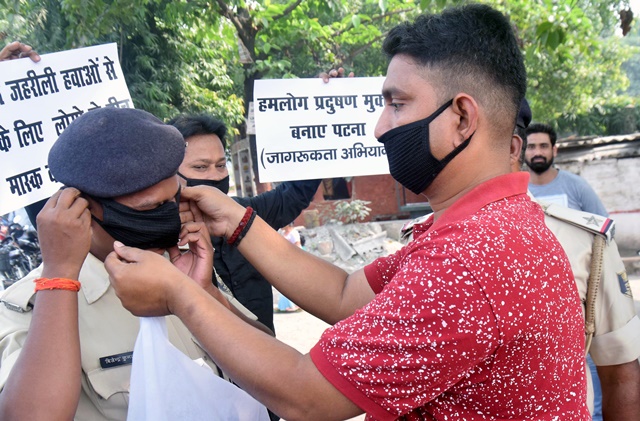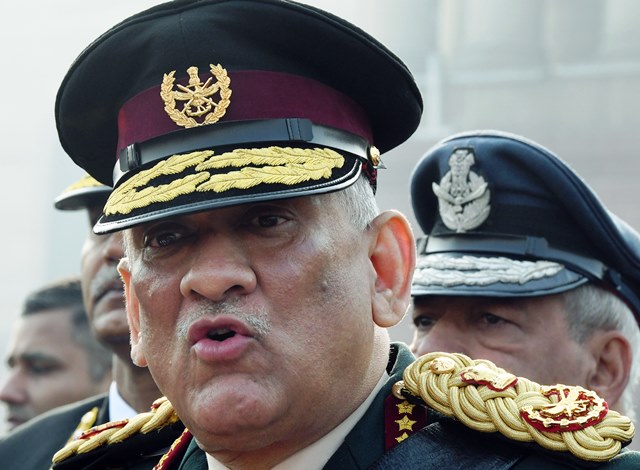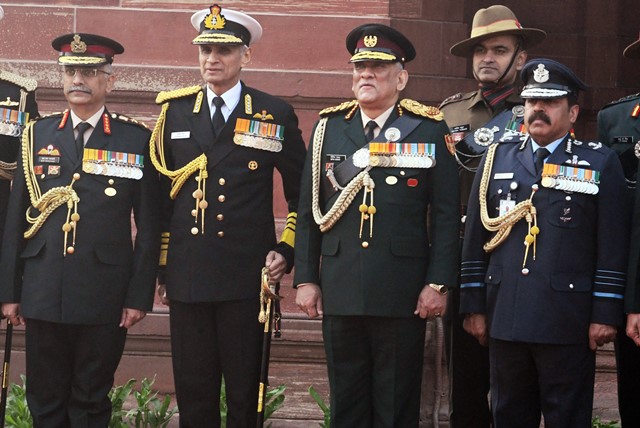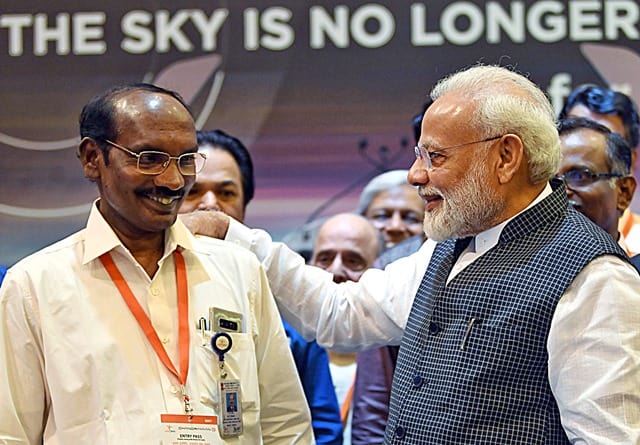Amidst so much ongoing
controversy and toxic debate in India, one decision of the Narendra Modi
Government to receive universal welcome is that of the appointment of the first
Chief of Defence Staff (CDS) at the top of three pyramids of the armed forces.
Appointed to the post
is General Bipin Rawat, PVSM, UYSM, AVSM, YSM, SM, VSM, ADC. Age 61 and
commissioned in 1978, his three-year tenure as the 27th Chief of Army Staff concluded
over the year-end.
His appointment fits
into the current dispensation’s muscular approach to security-related issues. Some
of it has stridently entered the political arena and public discourse (read
Pakistan), dividing people, but also capturing popular imagination.
But that does not
diminish the CDS’ importance as a reform in management of military affairs at
the top and for the vital military-civil synergy.
India
was the only large democracy without a single-point military advisor with all
P5 countries having one, till Modi announced the intent during his Independence
Day speech in August 2019. His government stands out, like the Atal Bihari Vajpayee Government
did, for taking long-pending security related decisions on which the past Congress-led
governments were extremely cautious. After years of debating, the Vajpayee
regime had appointed a National Security Advisor. Today the NSA has Cabinet
rank in the government.
The status of the CDS,
of course, will be below that. He will be heading a new Department of Military Affairs
within the Ministry of Defence. As the name indicates, it is envisaged as the
principal focal point for military affairs within the civilian set-up.
This has been long
awaited by the military, albeit with silent reservations in its top echelons,
depending upon individual and institutional preferences. But this military
super-boss should certainly cause deep consternation among the civil servants.
On Independence, India inherited British-trained military forces whose top officials took orders from civilians who in turn enforced what London desired. The new leadership, concerned about the role the military was playing post the World War II, particularly in Asia and in its immediate neighbourhood, consciously enforced civilian supremacy. As a result, India became a democracy, howsoever chaotic, while the military seized power for long years in the next decade or so, in Pakistan, Myanmar, Indonesia and elsewhere.
This political
supremacy and civilian control over the military in India has, in effect, meant
overriding powers for the bureaucrats who have kept the military way down in
parity. The CDS’ appointment tweaks this arrangement a bit, gently introducing
into the room a man in uniform. At the same time, the CDS has been assigned no
command function, which means the three Services Chiefs are free to run the
day-to-day affairs.
By
assigning the CDS a key role in planning, procurement, tri-service
institutions, defence diplomacy and quality assurance, the government could
simultaneously unleash a host of critical reforms that have been unheard of
until now.
Past
records show that the idea of creation of such a post goes back seven decades to
Lord Mountbatten, India’s last British Viceroy. As Army Chief, General KV
Krishna Rao had advanced creation of the post of CDS in 1982.
It was formally envisaged
after the Kargil war in 1999, but was put on the back-burner, despite
authorities recommending the need for creating a post for a single command
centre in matters of warfare and nuclear weaponry.
The Kargil Review
Committee, Report of Task Force on National Security (Naresh Chandra Committee),
and the Committee of Experts on Enhancing Capability and Rebalance Defence
Expenditure (General Shekatkar Committee) had chalked out a strategy for higher
defence management.
In 2017, intelligence
and security officials and analysts had said that the absence of a CDS was
hampering India’s combat capabilities. With an ongoing proxy war with Pakistan
and a stand-off with China on Doklam plateau, many security officials said a
single chain of command was imperative to strengthen India’s collective defence
might.
About the CDS’
positioning, veteran security analyst Commodore (rtd.) Ranjit observes: “History needs to
be heeded as access to the Prime Minister in India as head of the Cabinet
matters as India runs on Cabinet Control. President is Commander-in-Chief only formally.
The PM retains the real power.” Hence, personality of the Chief matters.”
He
recalls: “In 1971 General (later Field Marshal) Sam Manekshaw set a bench mark
as the Chairman of Chiefs of Staff Committee (COSC) to act like a CDS with
direct access to the Defence Minister and Prime Minister. This instilled
confidence and ensured effective preparations for the impending war that
followed in 1971. It took months to get the machinery going for that victory,
something we ought not to forget.”
But Manekshaw did not
make it to the CDS post. He “almost became CDS but then IAF Chief ACM Pratap Lal
had objected (as per Lal’s autobiography).”
Rai
offers another recall: “When the Navy Chief, Admiral S M Nanda was told by the Defence
Secretary on phone that Manekshaw was going to be the CDS, he remarked, ‘make
any one anything as long as you do not remove a star from me’, or words to that
effect.” Years later, Admiral Sushil Kumar could not become the CDS due to the
Air Chief’s objection.
Indeed,
several Chiefs of one Service or the other have objected to having a
super-boss. If the Army is oldest
and many times larger than the Navy and the Air Force, goes the argument, the
latter two are more technical in tune with modern times and in no way less in
strategic terms.
The
Modi Government has ignored/over-ridden such a possibility. But issues could
arise in the future. To avoid such situations, Rai strongly recommends, “the
CDS will have to bring in Jointness and many challenges will then ease in his
big task of tri-Service training and procurement and operations.”
As
an aspiring regional power jointmanship is the way forward for India, like the
United States, China, the UK and Australia. It may not be easy since the
Services Chiefs have had no experience of working under a single, unified
command. On the other hand, given the way the system works in India, there is
fear that this may end up as another
layer, like an onion peel in the multilayered and often opaque decision-making
apparatus.
While
the Department and the Defence Ministry shall remain intact in its original
form, the CDS will be the single-point advisor to the Defence Minister. But
that the three Service Chiefs will continue to remain advisors to the Defence
Minister about their own Services seems contradictory.
As
Lt. Gen. (rtd.) Prakash Menon puts it, in essence, the CDS “is dual-hatted and
will have to adjudge contentious issues initially at the inter-service level as
Permanent Chairman of the Chiefs of Staff Committee (PC-COSC), and thereafter
as CDS at the departmental level.”
This “dual-hatting” is better explained by
the need for the CDS to act as a bridge between the political leadership and
the military instrument, which has to encompass the shaping of the military
through long term plans that are guided politically.
The
writer can be reached at mahendraved07@gmail.com
